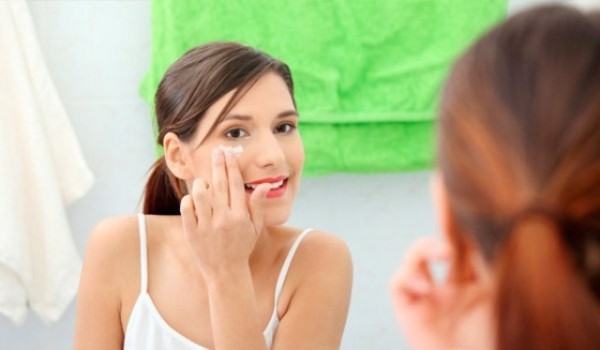FDA Warns of Dangerous Reactions to Anti-Acne Lotions

Acne lotions and creams can cause serious allergic skin reactions, warn health officials.
The U.S Food and Drug Administration (FDA) issued a statement urging people to stop using over-the-counter acne treatment products that contain benzoyl peroxide and salicylic acid. These ingredients cause severe irritation and adverse reactions that are different from the ones already mentioned in warning messages in the product labels like dryness, skin peeling, redness, itching and swelling. The agency recommends users to discontinue the application of acne creams and seek medical consultation in case they experiences any of these conditions with minutes or a day after use.
The skin care products from brands like Clean and Clear, Proactive, Neutrogena, Oxy, Ambi, Aveeno and MaxClarity contain the two chemicals. The FDA officials are unsure if the skin conditions occur because of the above mentioned chemicals or presence of other inactive ingredients in acne creams.
"There is currently no mention of the possibility of these very severe allergic reactions on the product labels," said Mona Khurana, M.D., a medical officer at FDA in a news release.
"It's important that consumers know about them, and that they know what to do if they occur," she adds.
The organization's Drug Safety Communication aims to acquaint both consumers and health care-professionals about the deadly consequences of using these products. The side-effects rarely occur. So far, the FDA has received about 131 complaints between 1969 and 2013 from consumers on allergic skin reactions linked to the application of acne treatment creams. Almost 40 percent of the affected cases experienced allergy symptoms like throat tightness, breathlessness, wheezing, low blood pressure and fainting. The reports also said a few people developed hives, irritation on the face and body parts that were not exposed to anti-acne medications and swelling of the eyes, face and lips.
Nearly 44 percent of the people from the reported incidents were hospitalized but no deaths occurred.
"FDA will continue to monitor closely and evaluate this safety issue," Khurana says.
The health experts also advise consumers to first test the products by applying in small amounts in acne infested area for three days before using.
Jun 26, 2014 08:36 AM EDT




